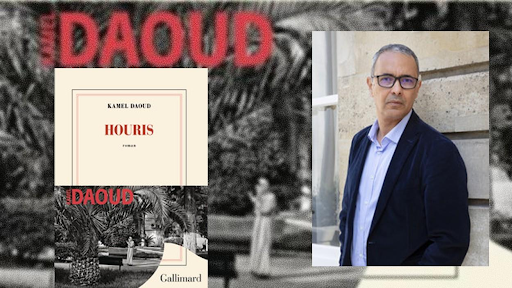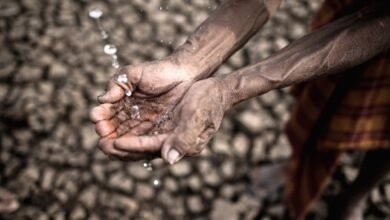Kamel Daoud, Winner of the 2024 Goncourt Prize: The voice of a changing Algeria
The Algerian writer Kamel Daoud, awarded the 2024 Goncourt Prize for his novel Houris, has established himself as one of the most distinctive voices in contemporary literature. With this third novel, he continues to explore the scars left by war and civil conflict in Algeria, while delving into universal themes of memory and silence.

By Bilkyss Mentari
Born in 1970 in Mostaganem, Algeria, Kamel Daoud is a writer and journalist whose work is marked by a deep commitment to his country and its language. A former columnist for Quotidien d’Oran, he became an author in 2014 with his debut novel Meursault, contre-enquête, a text that questions the silences and absences of the Algerian War through the eyes of the brother of the hero of Camus’ The Stranger. This first book received widespread critical acclaim, earning Daoud the Goncourt Prize for First Novel and a fatwa due to its boldness.
Since then, Daoud has continued his exploration of Algerian history and identity with Zabor ou les Psaumes in 2017, which won the Mediterranean Prize. However, it is with Houris, published in August 2024, that he achieves a new level of recognition, winning the prestigious Goncourt Prize. In this novel, he tells the story of Aube, a young Algerian woman forever marked by the horrors of the 1990s civil war. Her voice, silenced by an assassination attempt when she was a child, seeks to rebuild itself through a narrative addressed to her unborn daughter. Houris becomes a powerful metaphor for the silent but persistent suffering, a tribute to the resilience of women in the face of historical wounds.
The French language: An intimate and political choice
One of the most fascinating aspects of Kamel Daoud’s journey is his complex relationship with the French language. In an interview with France Inter in November 2024, he described French as « an intimate language, » a secret language he chose to tell the story of his country. Although Arabic is the national language of Algeria, Daoud explains that his relationship with French is deeply personal, a way to reclaim a colonial language and give it its own meaning, far from the political implications often associated with its use.
For him, French is « an island » where he finds a form of creative freedom. Unlike Arabic, which he describes as an « illusory language » in the Arab world, French becomes his tool of expression, allowing him to write and reach a global audience while staying deeply rooted in Algerian reality. This reflection on language is, in fact, a recurring theme in his works, where he constantly questions the relationships between languages, identities, and collective memories.
A voice for the silences of history
Kamel Daoud also stands out for his ability to tell the story of Algeria not only through fiction but also through a critical lens on political and social events. As a journalist, he covered the atrocities of the 1990s civil war, a traumatic period for many Algerian families. Yet, he refuses to rely solely on journalism to testify to this era. He believes that « wounds are measured by journalism but are told through literature. » Thus, through his novels, he makes the silences speak, giving voice to those who have been rendered mute by violence.
In Houris, this silence is manifested in the character of Aube, the mute protagonist, who seeks to reconstruct her own history and that of her country through the fragmented memories of her life. This narrative is a quest to give meaning to suffering that often remains unspoken in the Algerian public discourse, where the civil war remains a taboo subject.
An author at the heart of history and memory

With Houris, Kamel Daoud crafts a novel that is both intimate and political, where the voice of the individual confronts the collective traumas of a nation. Winner of the 2024 Goncourt Prize, he continues to be a leading figure in world literature, carrying a universal message about resilience and the need to tell the unspoken. Through his writings and teachings, he establishes himself as an essential voice in understanding the fractures of Algerian history while inviting his readers on a literary and philosophical journey with no return.






